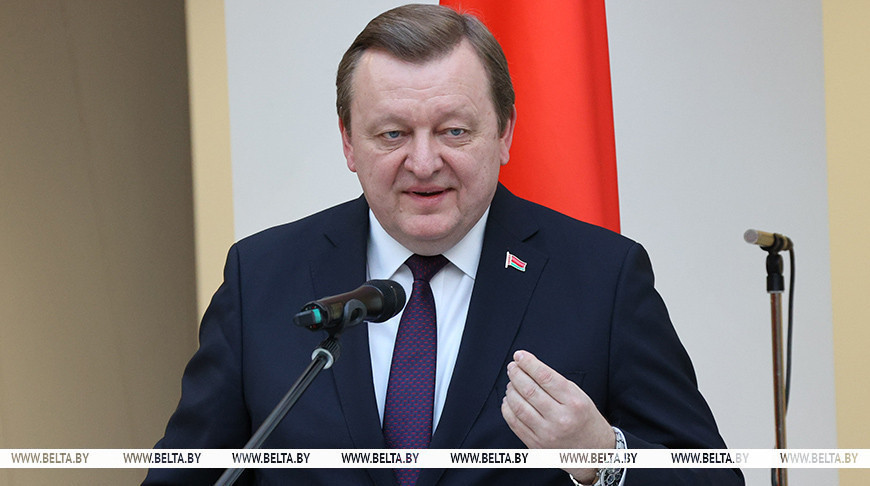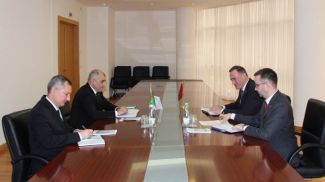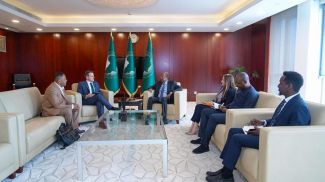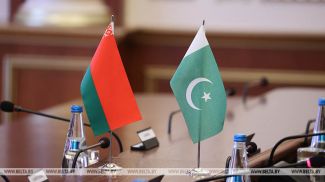
MINSK, 18 February (BelTA) - The linguistic diversity embodies a cultural diversity, encourages the exchange of views, and creates the basis for mutually respectful dialogue, acceptance and cooperation between peoples, Belarusian Minister of Foreign Affairs Sergei Aleinik said at a solemn event on the occasion of the International Mother Language Day at the Minsk Town Hall on 16 February, BelTA has learned.
Holding joint literary evenings has already become a good tradition for the Belarusian Ministry of Foreign Affairs and the foreign diplomatic corps. This reaffirms the shared commitment to the importance of linguistic and cultural diversity.
"As there is no river without water, there is no nation without language. I am sure that all of you treat your native language with great love and respect, because it embodies the history of the people, its cultural and spiritual heritage, customs and traditions," Sergei Aleinik said. “Language is also a source of development with a great unifying potential and power." In this regard, Sergei Aleinik quoted the South African historical leader Nelson Mandela: "If you talk to a man in a language he understands, that goes to his head. If you talk to him in his own language, that goes to his heart.”
"In linguistic diversity lies our unity. It embodies cultural diversity, encourages the exchange of views, creates the basis for mutually respectful dialogue which is the main tool of our diplomatic work, the basis for interaction and cooperation between countries and peoples,” the minister stressed. “Belarus has long understood this simple truth. We have never divided our people either by language or ethnicity."
Now there are two state languages in Belarus, and once there were four of them. "But the Belarusian language has always occupied a special place. It gives us strength and resilience. Its mellifluousness reflects the unbending will of Belarusians, the originality and flavor of our rich culture,” Sergei Aleinik is convinced. “We hear the Belarusian language in songs full of magical beauty, legends, tales, witty and wise proverbs, apt sayings and fairy tales, works of fiction and scientific literature.”
The minister expressed gratitude to the representatives of the diplomatic corps for responding to the invitation to participate in the event and their readiness to get a feel of the Belarusian poetry.
The heads of diplomatic missions recited poems by Belarusian poets. For example, Ambassador Extraordinary and Plenipotentiary of China Xie Xiaoyong read an excerpt from Vladimir Mozgo's poem "Sakaviny". Ambassador Extraordinary and Plenipotentiary of Armenia Razmik Khumaryan chose Ales Staver's poem "The cranes are flying to Polesie ", Charge d'Affaires of Israel in Belarus Tzevy Mirkin - Vasil Bykov’s Alpine Ballad.
The event wrapped up with an entertaining program.













